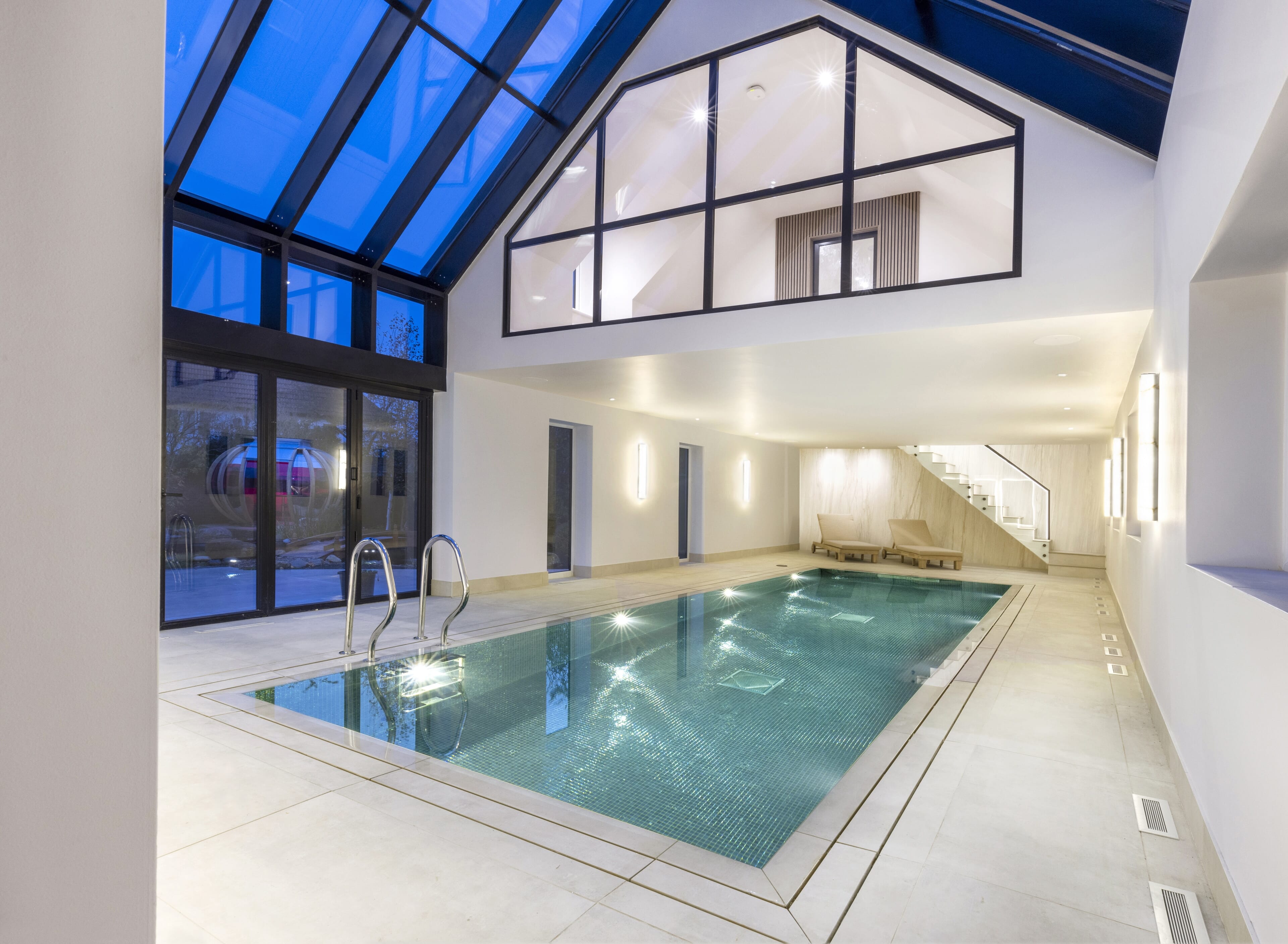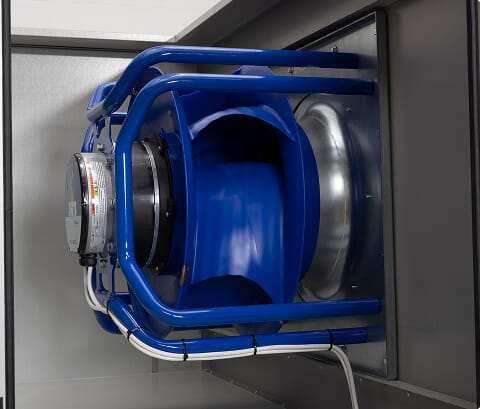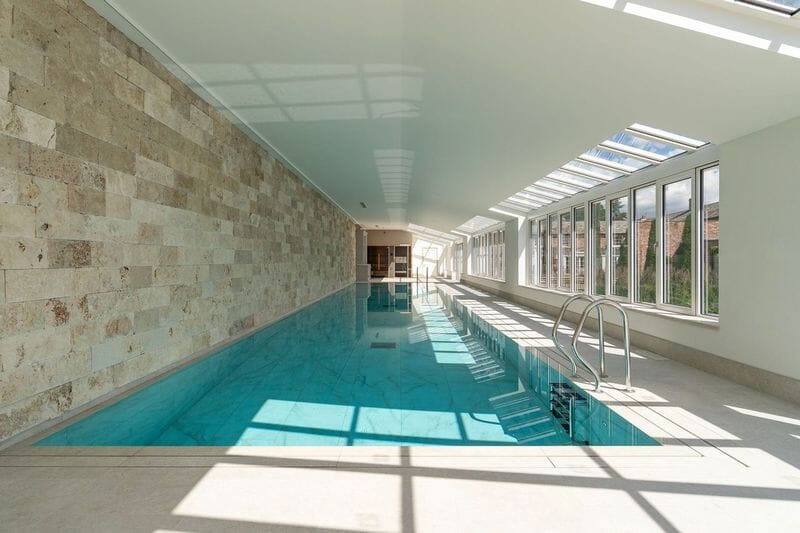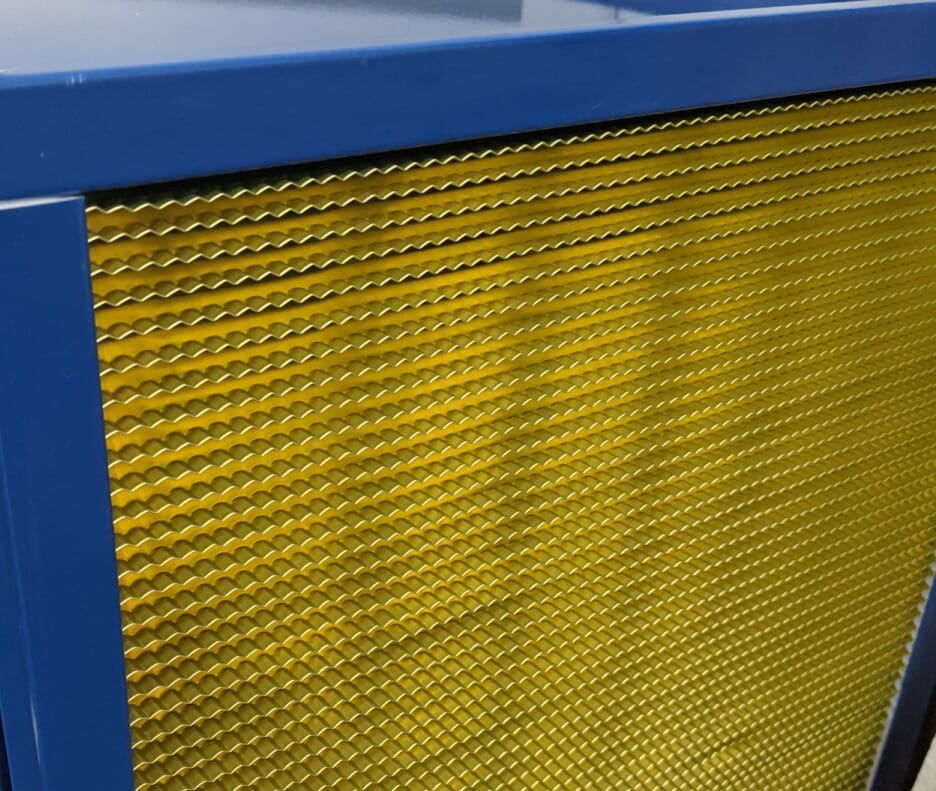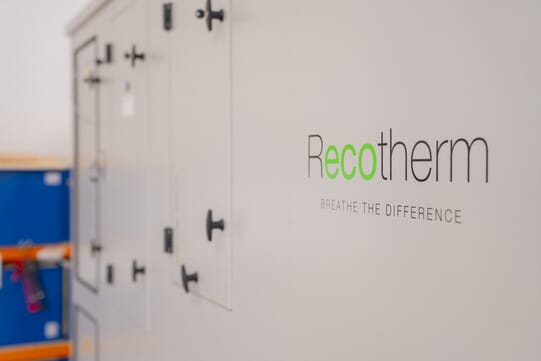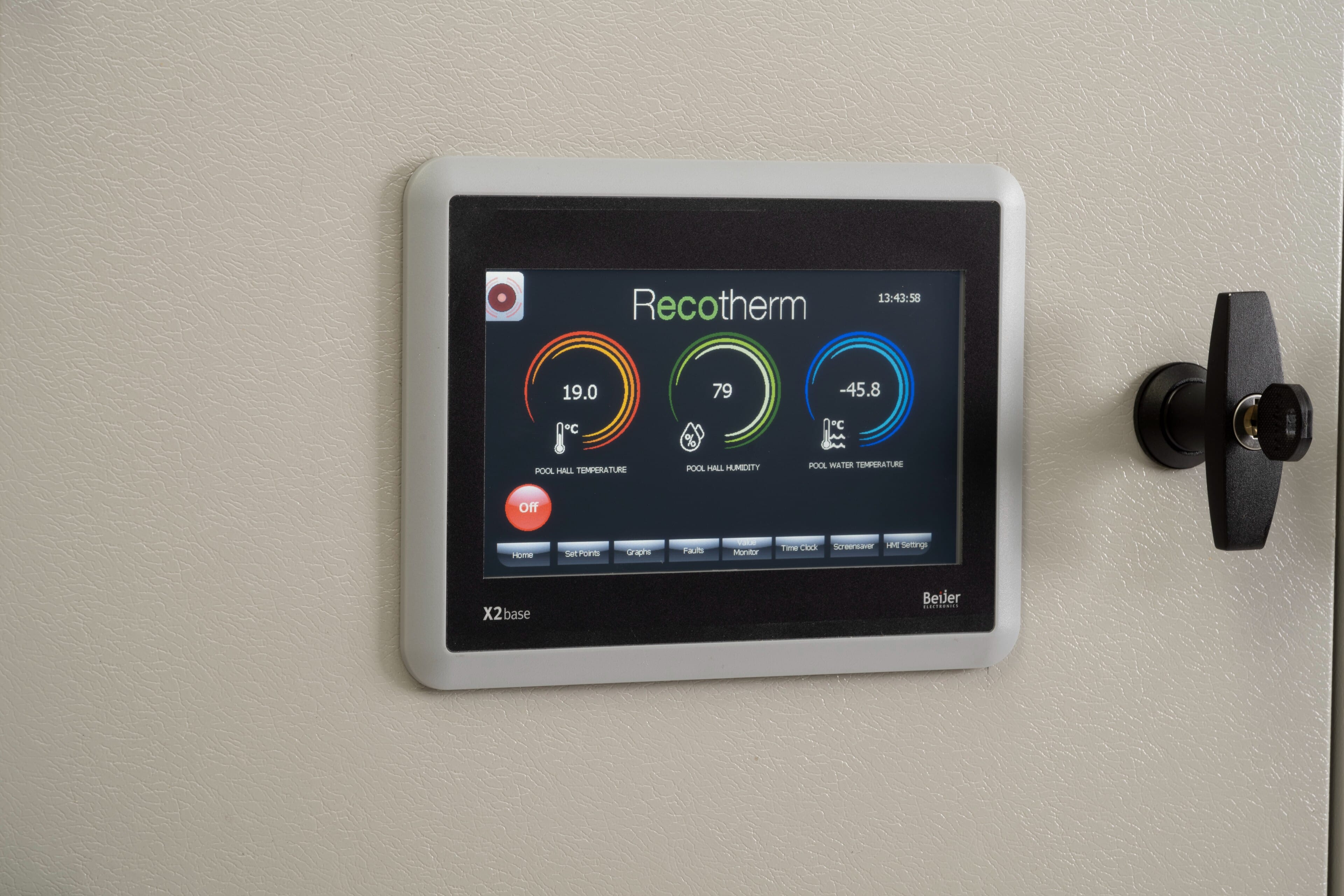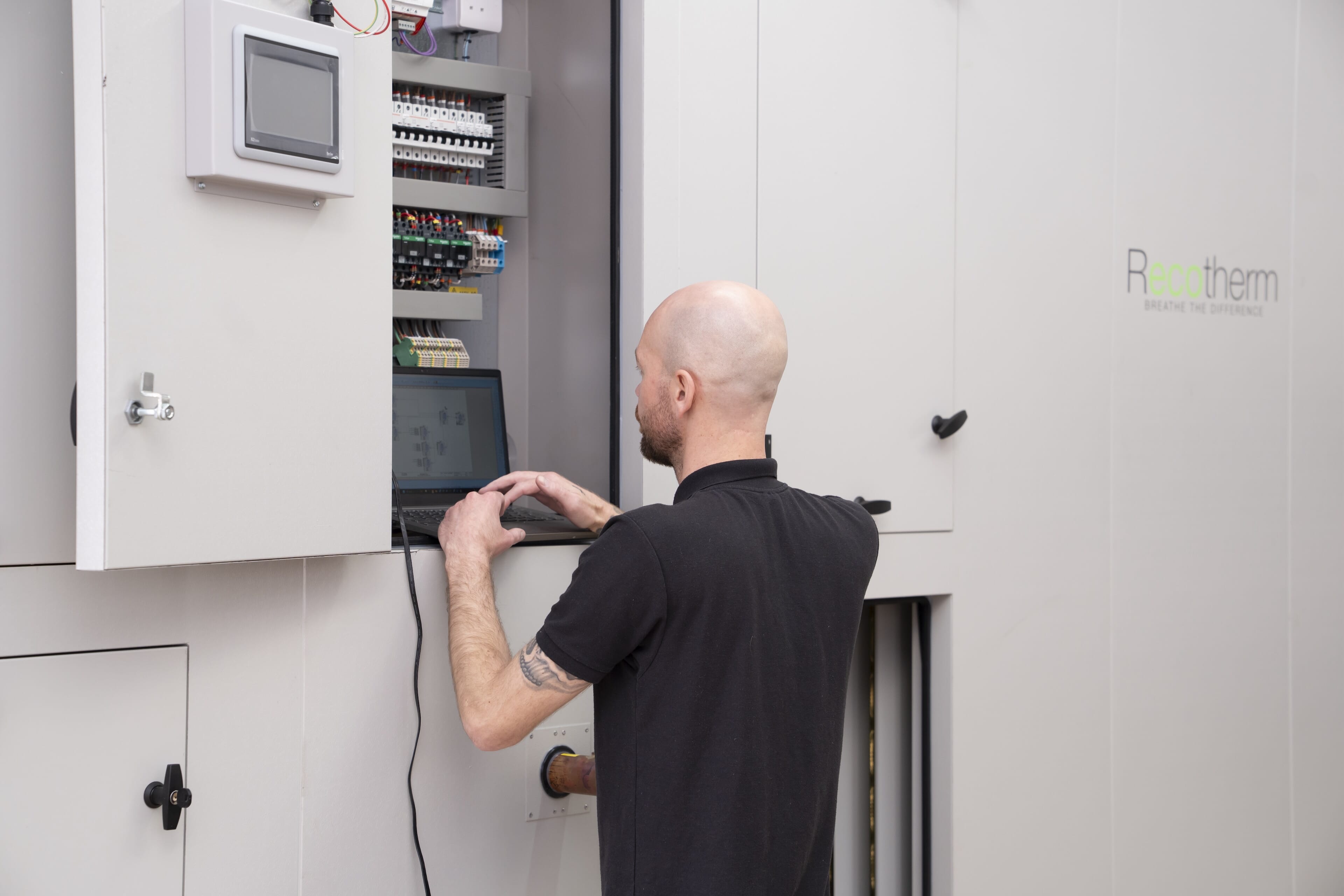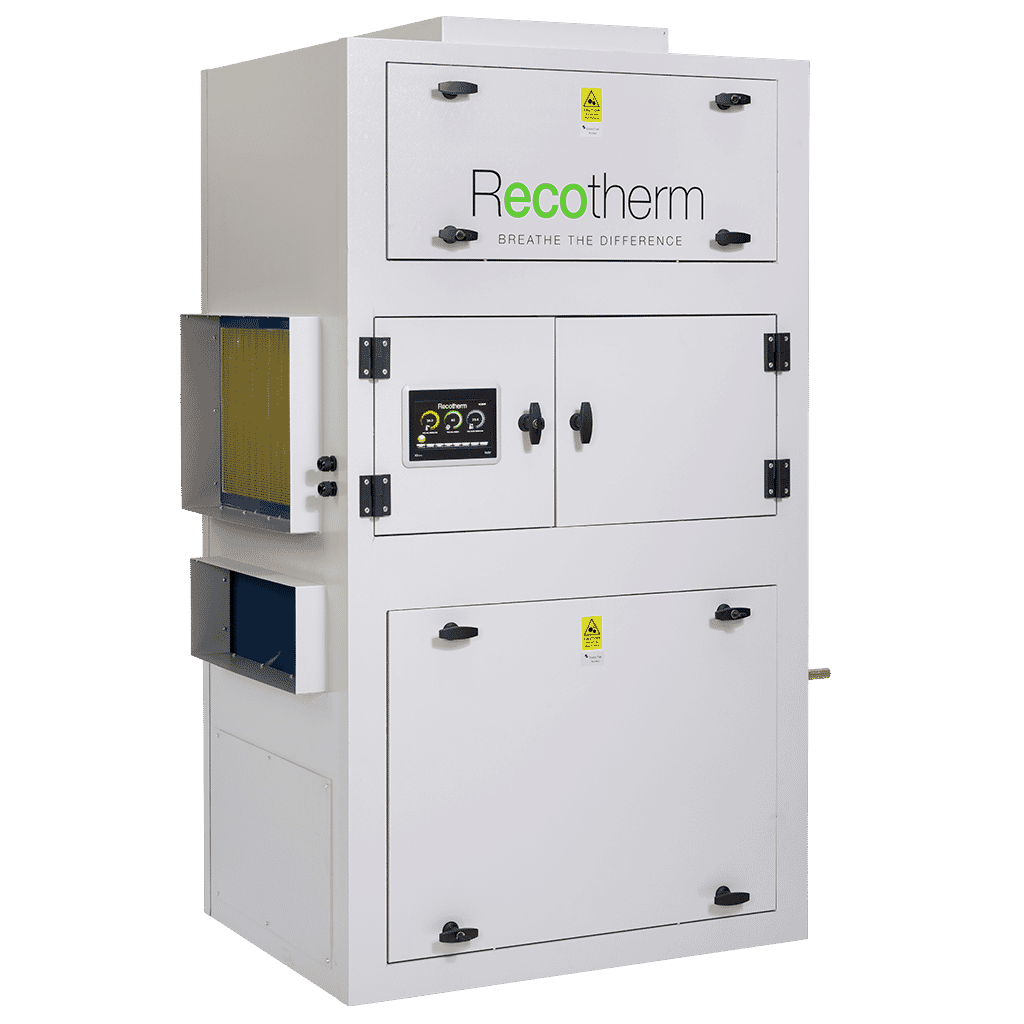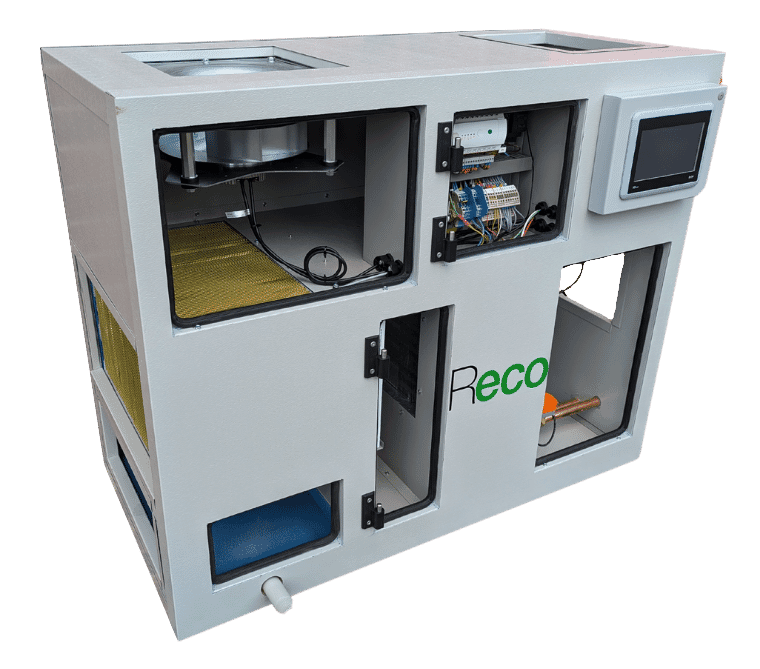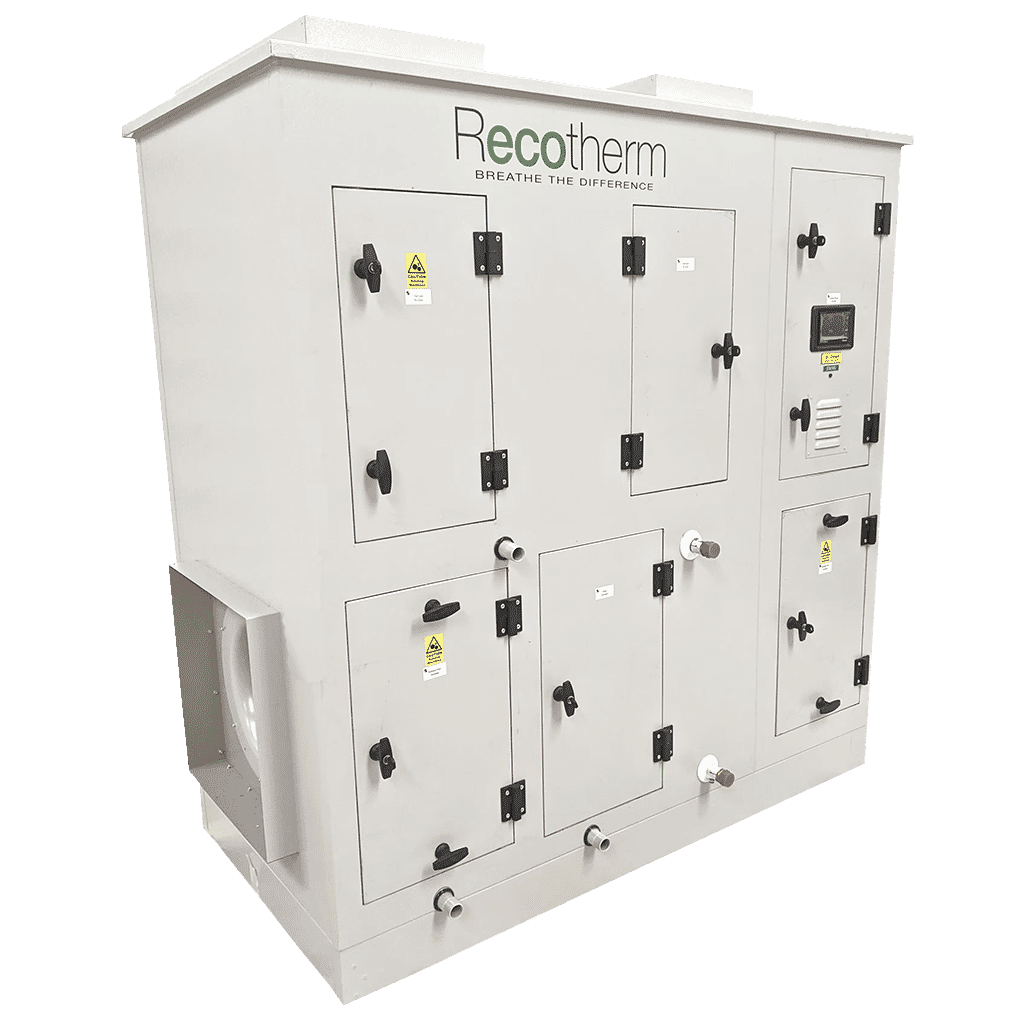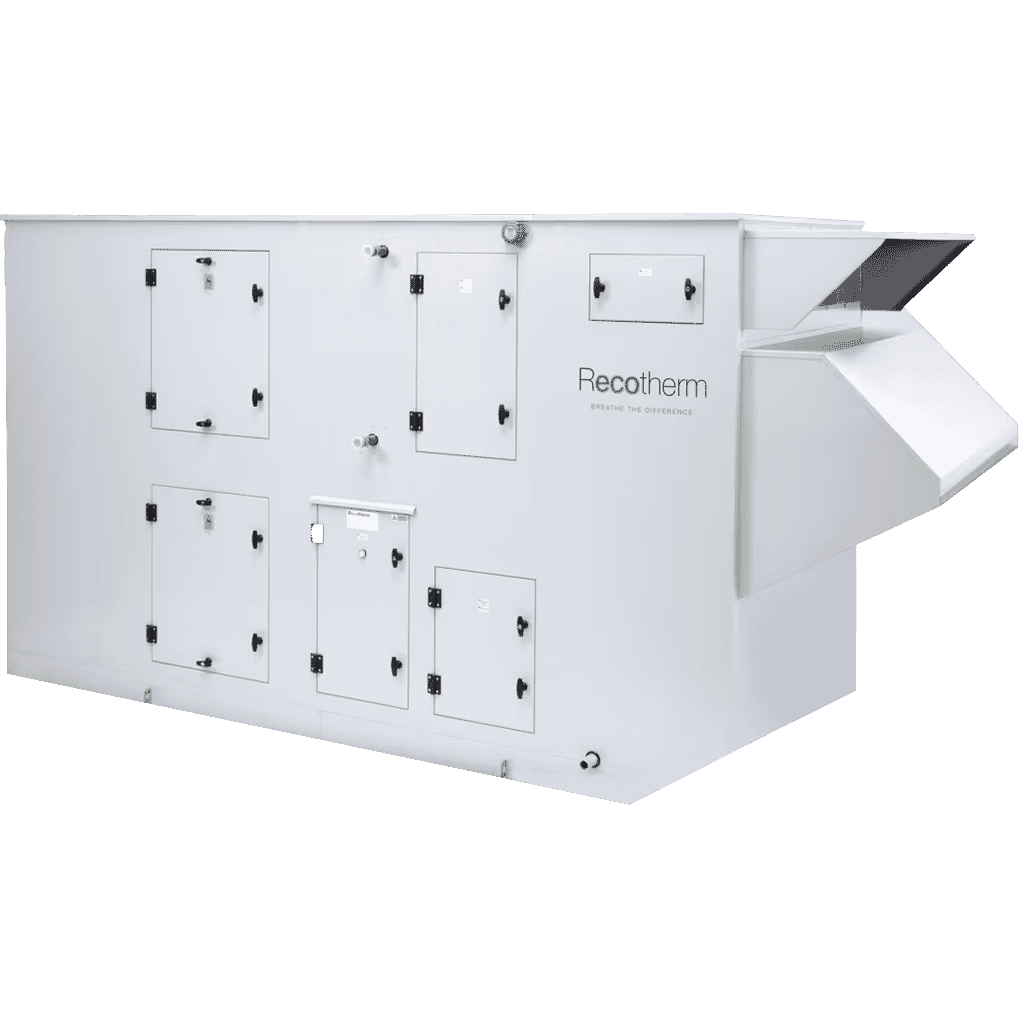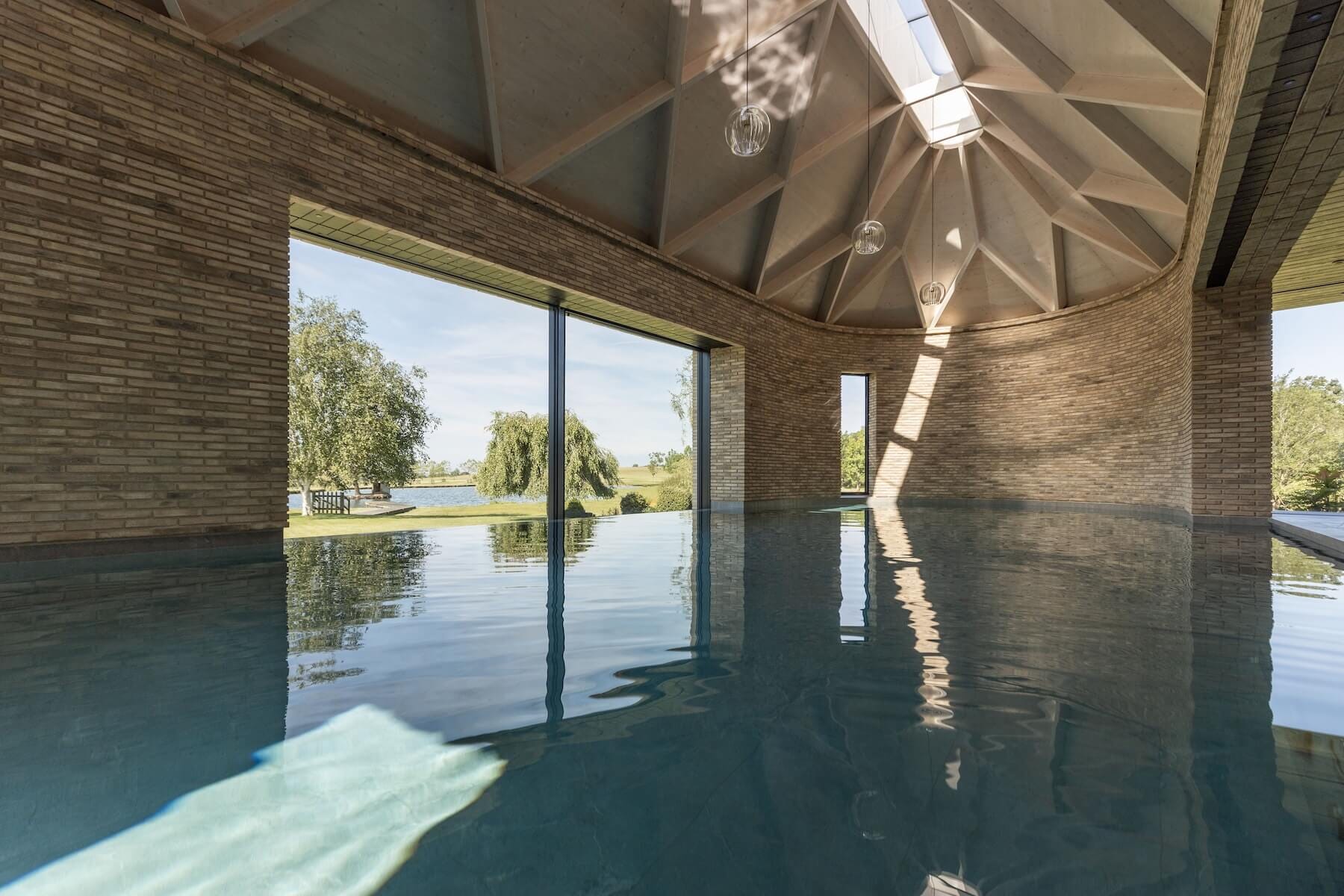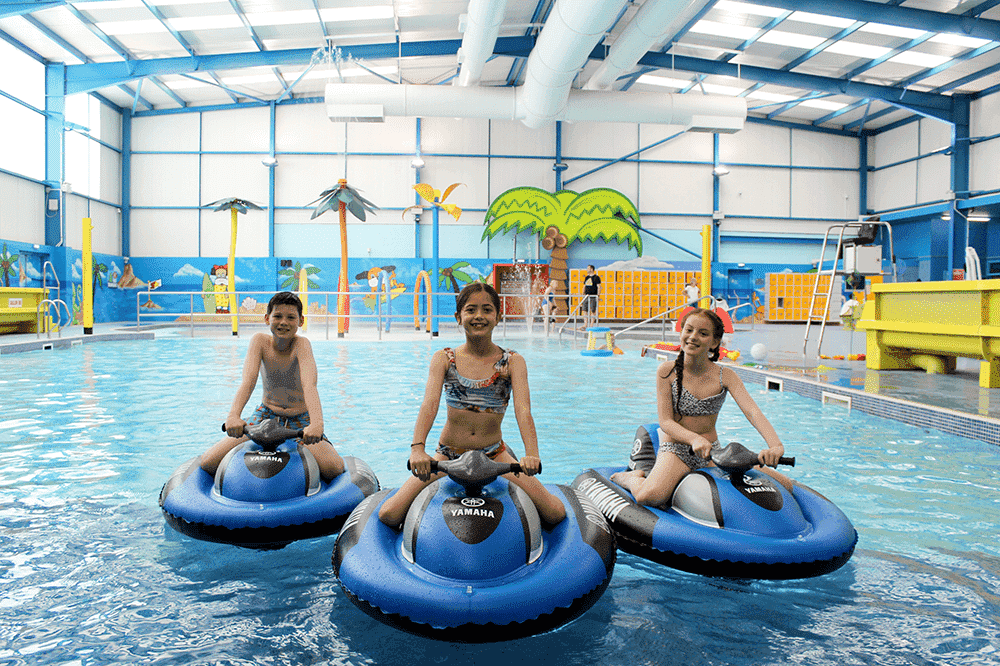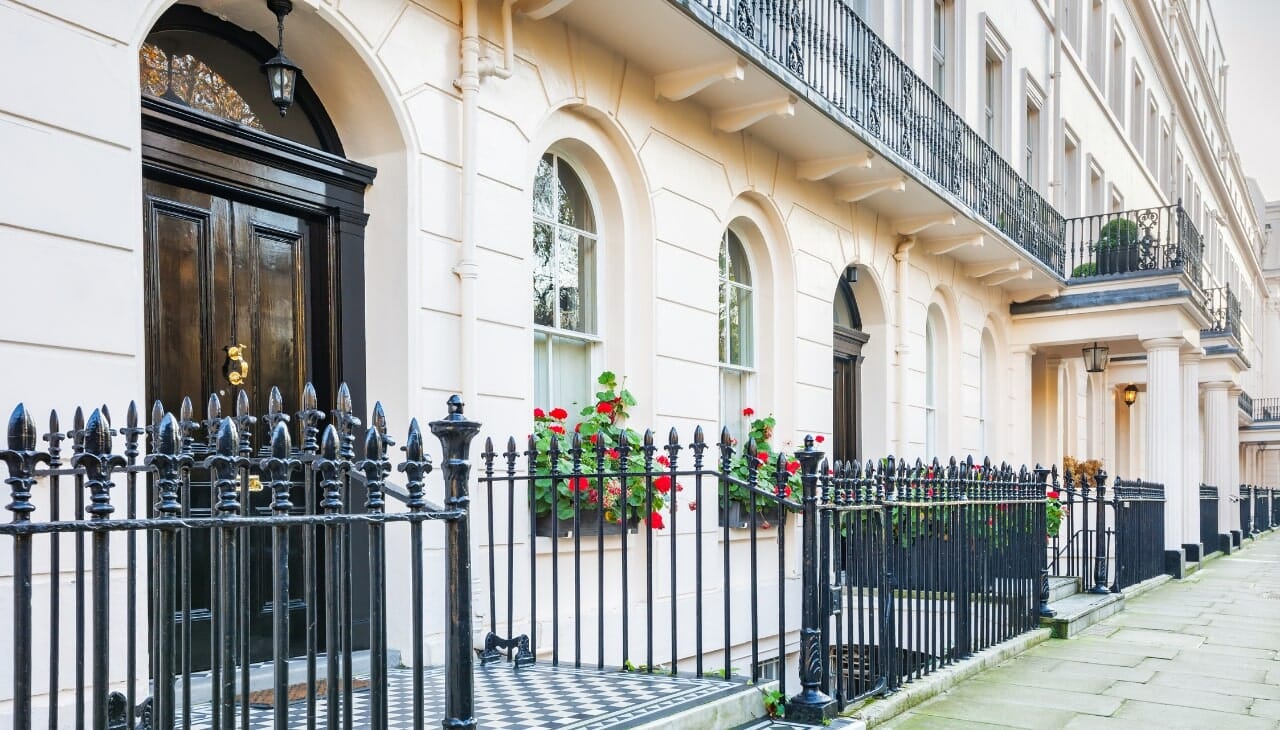Engineered for efficiency, Recotherm’s swimming pool AHUs use controlled fresh air and heat recuperation for enhanced comfort and cost-saving.
Recotherm’s intelligent air handling units adjust dynamically depending on pool size and usage. With 40 years’ expertise in building commercial AHUs, we’ve created one of the most energy efficient systems on the market.
For unconventional or unique projects, our engineers excel at designing and delivering bespoke AHU systems to meet specific requirements, for example, where there is restricted access, restrictive space within plant rooms or when working with existing infrastructure.
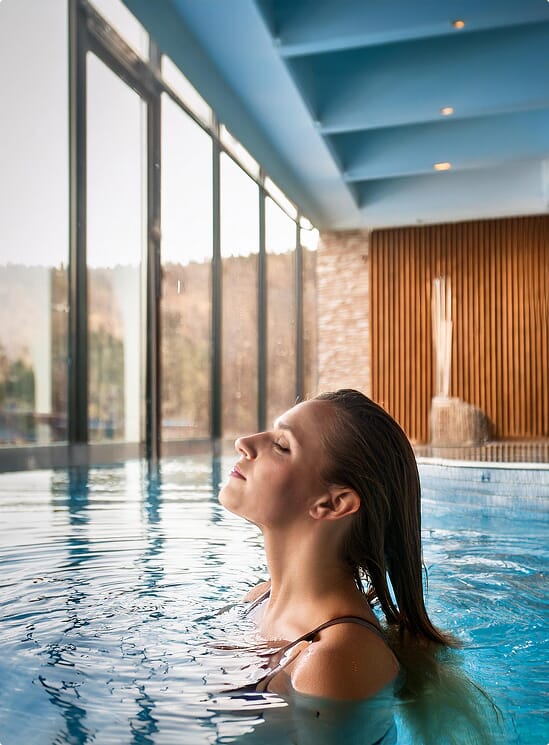










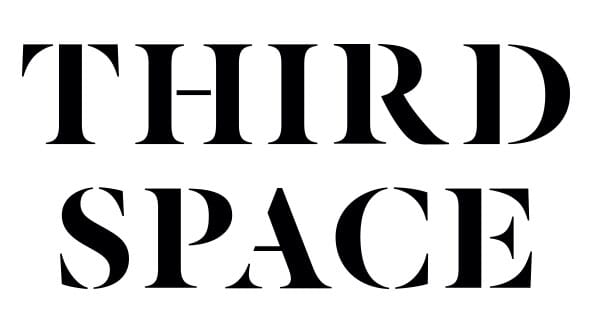



















FAQs for Pool Contractors
Yes, Recotherm units can be weatherproofed for outdoor installation at no extra cost. However, the control panel should be housed in a protected environment or placed indoors for easy access.
Yes, Recotherm’s swimming pool air handling units can monitor and adjust pool water temperature when fitted with the appropriate sensors and control valves, offering seamless integration with heating systems.
For most domestic installations, a single-phase supply is sufficient. Larger swimming pool air handling units for commercial applications usually require a three-phase supply due to increased capacity requirements.
Supply air should be directed over the coldest surfaces, typically windows, to prevent condensation. Swimming pool ventilation systems should avoid blowing air directly onto the pool water to minimise evaporation and energy loss.
Some smaller Recotherm units, such as those in the Aeris range, can operate on a standard 13-amp supply, making them suitable for domestic pools. Larger units may require a higher electrical capacity.
Yes, to maintain stable pool water and air temperatures, the boiler must be available at all times. However, Recotherm systems optimise energy efficiency by adjusting their operation based on real-time conditions.
It is highly recommended to distribute the air over cold surfaces, such as windows. However if this is not possible, the internal humidity can be adjusted as the external temp drops to ensure that the dew point of the air remains below the internal surface temperature of the glass.
A pool cover will help to virtually eliminate evaporation from the surface of the pool water when the pool is not in use. Water costs money to heat and add to the pool, so anything that can be done to prevent water loss is advisable. There are certain pool shapes where it may be difficult to cover the surface of the water and neatly store the cover when it is off the pool. Careful consideration should be given to the pool design to try to ensure a pool cover can be incorporated. A pool without a cover will cost a lot more to run than one with a cover.
Yes, because when a cover is on the pool, the pool hall is generally unoccupied. Maintaining the normal 30°C air temperature would be wasteful, so the air temperature in the pool hall can be lowered during unoccupied periods. As well as lowering the temperature, the fans can also operate at a lower speed therefore reducing energy consumption.

